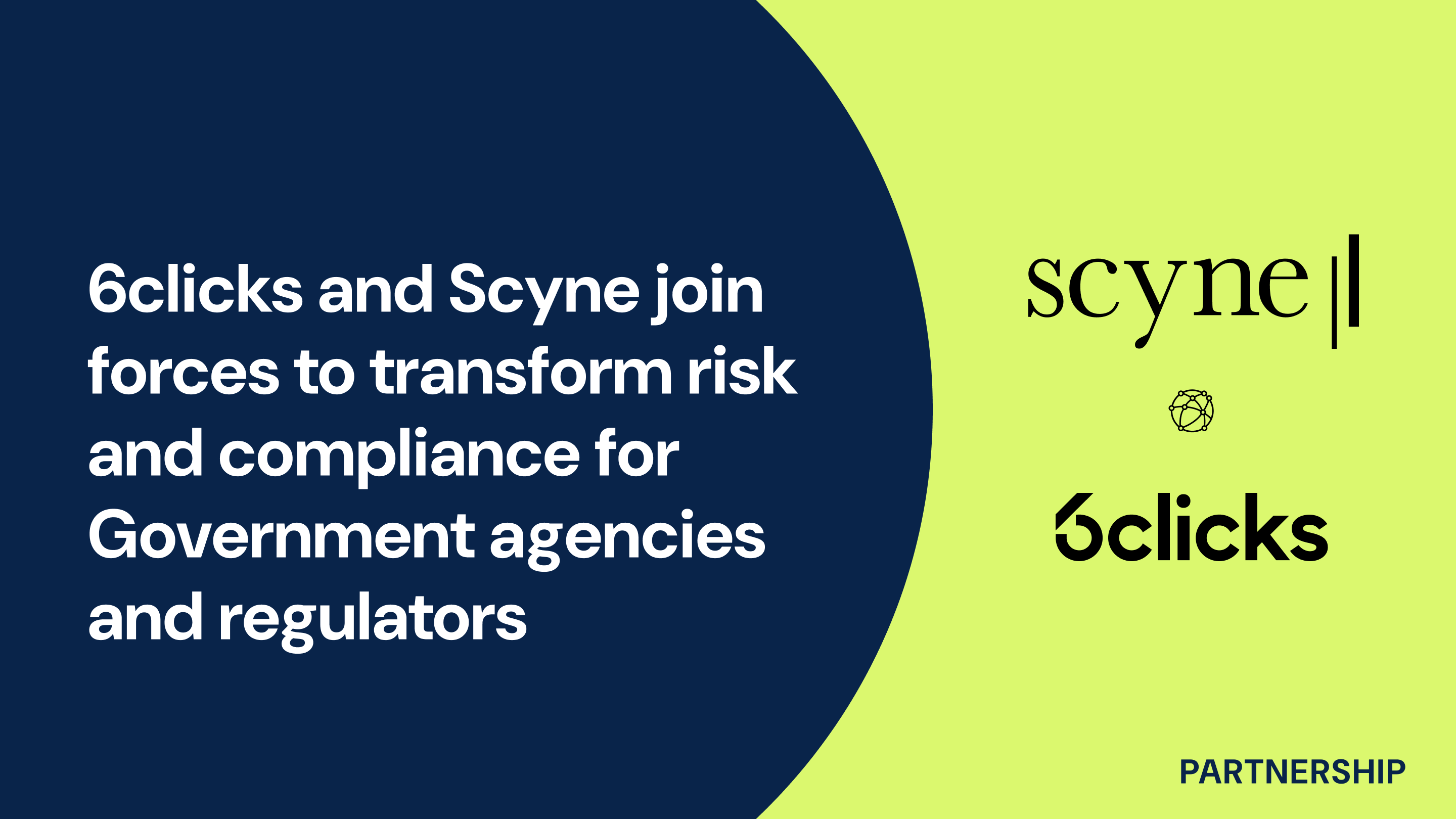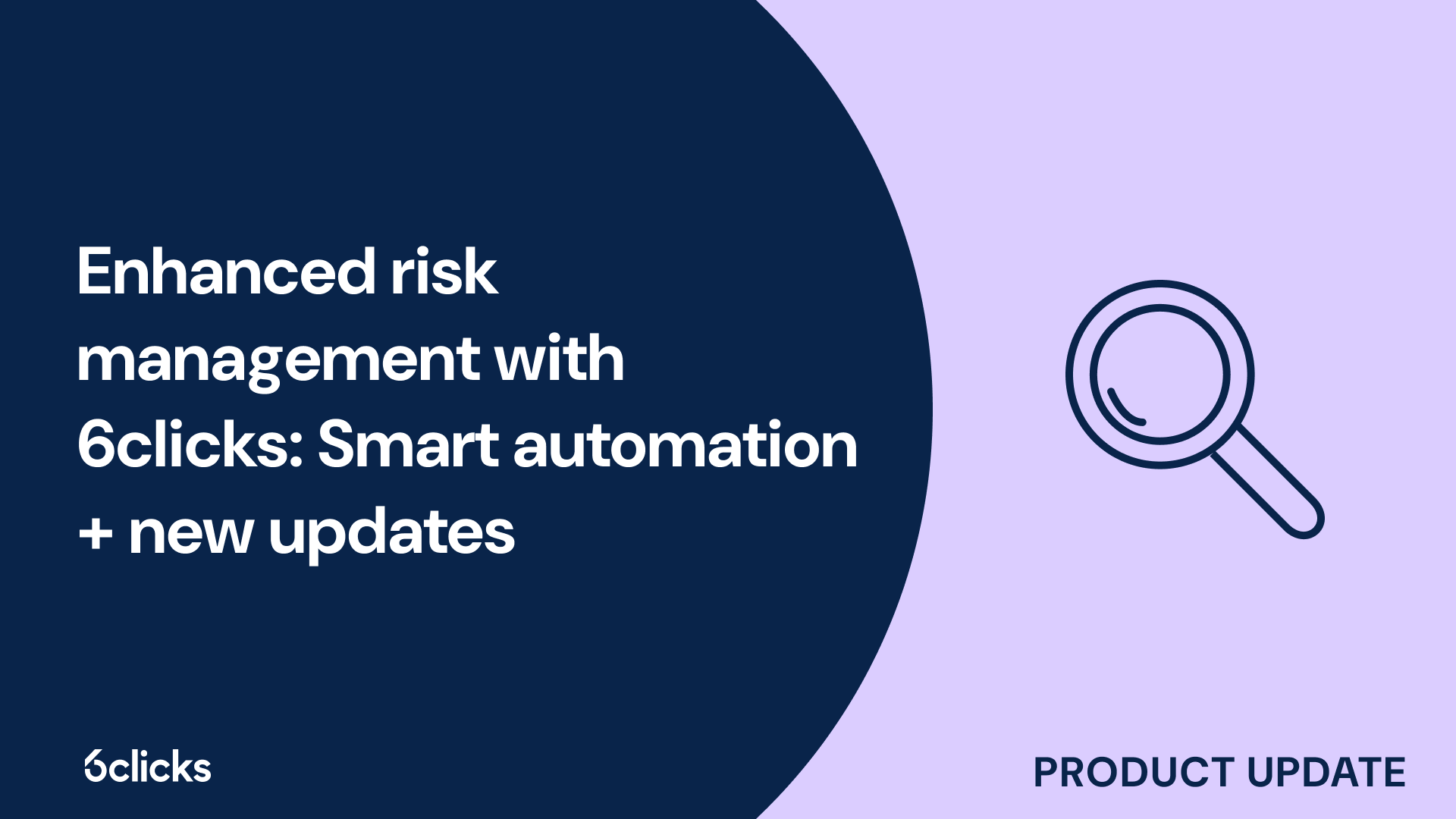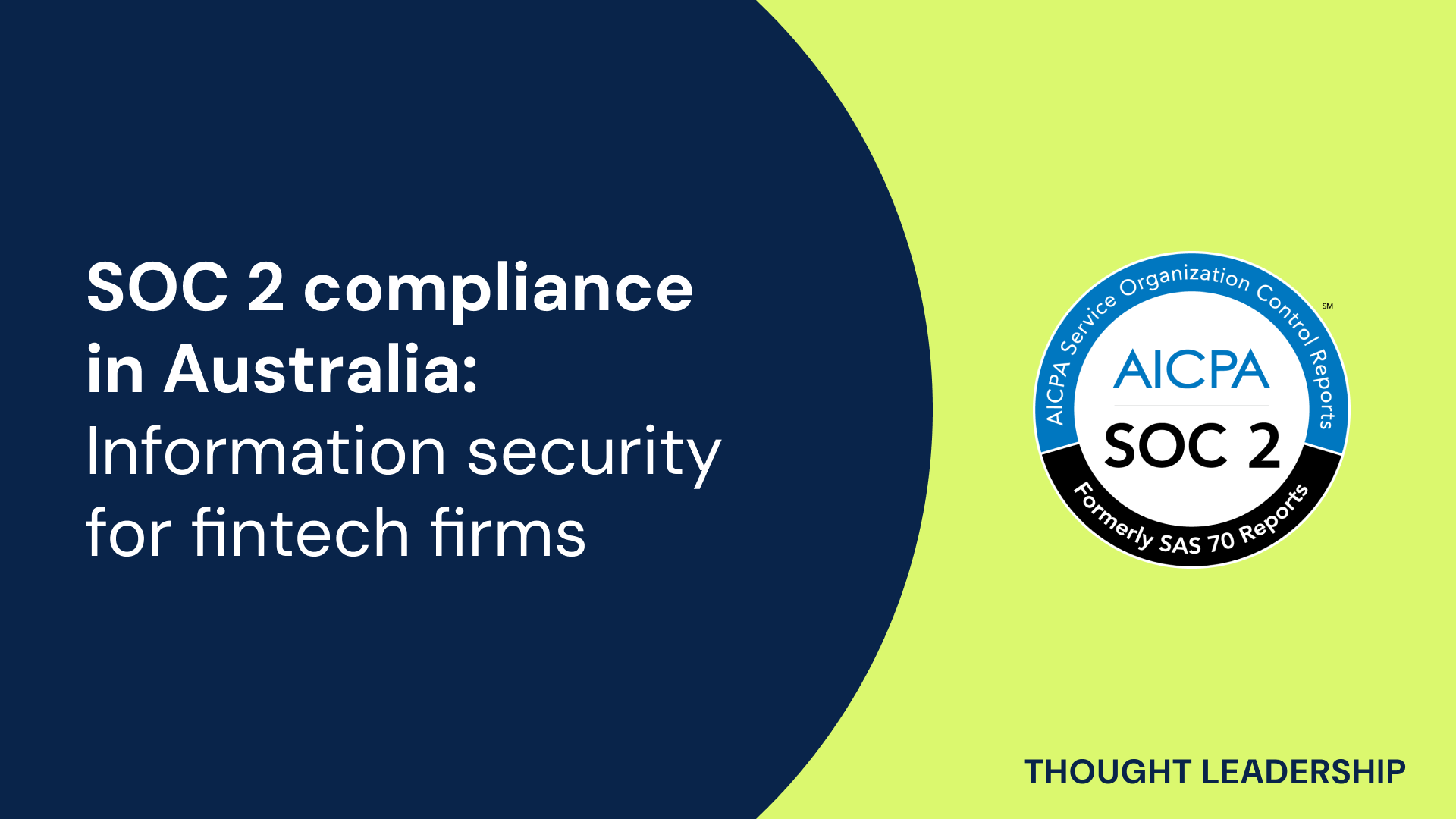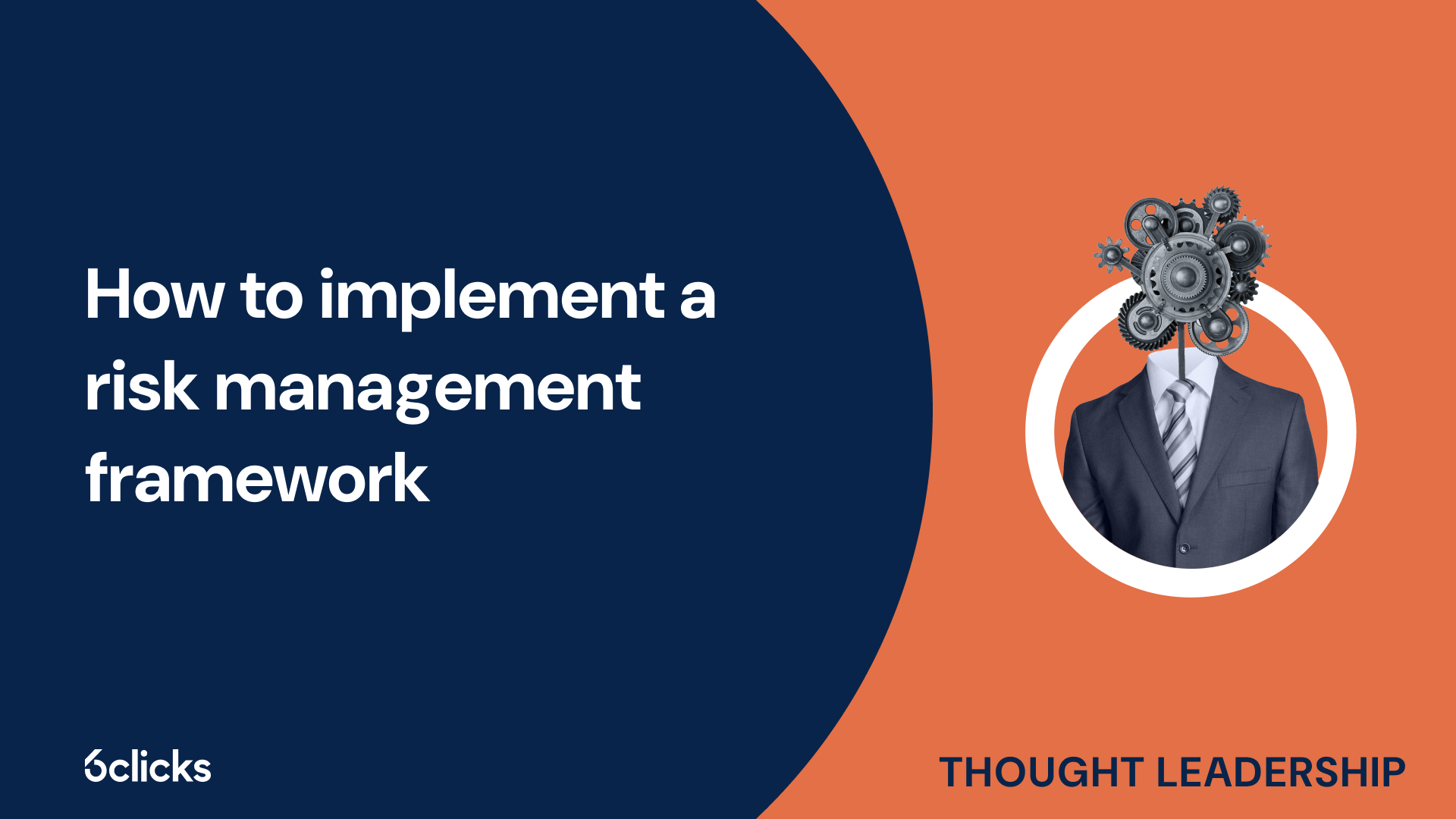The GRC buyer’s guide for 2025: Building resilience with AI-powered, federated solutions
Discover the ultimate GRC buyer's guide for 2025! Uncover how AI-powered, federated solutions transform compliance and security management for industries like government, aerospace, banking, and more. Learn about centralized control, continuous compliance, and advanced cyber GRC capabilities. Download now!
-1.png?width=200&height=249&name=Group%20193%20(1)-1.png)
The GRC buyer’s guide for 2025: Building resilience with AI-powered, federated solutions
What is regulatory compliance?
Regulatory compliance refers to the act of adhering to laws, regulations, guidelines, and standards set by regulatory bodies, government agencies, and industry organizations. It entails ensuring that businesses and organizations meet legal requirements, industry-specific rules, and other applicable regulations that govern their operations. Regulatory compliance is essential for companies to maintain integrity, avoid legal repercussions, protect consumers, and create a safe and fair business environment. It covers a diverse range of areas, including financial services, healthcare, food safety, workplace safety, data privacy, and environmental protection, among others. Achieving regulatory compliance requires comprehensive compliance programs, effective compliance management, and the appointment of compliance officers who are responsible for identifying and mitigating compliance risks. By maintaining compliance, organizations can build trust with stakeholders, protect their reputation, and achieve their business goals while operating within the boundaries set by applicable regulations and standards.
Types of regulatory compliance
Regulatory compliance refers to the adherence and conformity to laws, regulations, standards, and guidelines set by various authoritative bodies. Businesses and organizations across different industries must comply with a wide range of regulatory requirements to operate legally and ethically. Here are some different types of regulatory compliance:
- Financial Institutions: Banking, insurance, and securities regulations govern the financial industry to maintain stability and protect consumers. These regulations include the Banking Act, the Insurance Regulatory and Development Authority Act, and the Securities Exchange Act.
- Privacy Laws: Privacy laws, such as the Health Insurance Portability and Accountability Act (HIPAA) Privacy Rule and the General Data Protection Regulation (GDPR), aim to protect individuals' personal information and data confidentiality.
- Government Agency Regulations: Regulatory compliance also involves compliance with regulations set by government agencies. For example, Occupational Safety and Health Administration (OSHA) standards ensure a safe working environment, while the Food and Drug Administration (FDA) regulates the production and distribution of food, medical devices, and pharmaceuticals.
- Industry Standards: Industry standards, developed by organizations like the International Organization for Standardization (ISO), provide guidelines to ensure quality, safety, and efficiency. Compliance with ISO standards establishes credibility and enhances customer trust.
Complying with these diverse regulatory requirements is crucial to avoiding legal issues, maintaining the trust of customers and stakeholders, and achieving business goals. Organizations often employ compliance officers to oversee regulatory compliance programs and ensure adherence to applicable regulations. By fostering a culture of compliance and investing in compliance management systems, businesses can navigate the complex regulatory environment effectively and efficiently.
Financial institutions
Financial institutions, such as banks, insurance companies, and securities firms, face strict regulatory compliance requirements to ensure the stability and integrity of the financial system. These regulations aim to protect consumers, promote fair and transparent financial practices, and prevent fraudulent activities. Financial institutions must comply with laws and regulations such as the Banking Act, the Insurance Regulatory and Development Authority Act, and the Securities Exchange Act. These regulatory frameworks cover a wide range of areas, including capital adequacy, risk management, anti-money laundering measures, consumer protection, and disclosure requirements. Compliance with these regulations is crucial for financial institutions to maintain the trust and confidence of their customers, investors, and the overall market. It also helps to safeguard the interests of the stakeholders involved and contributes to the stability and proper functioning of the financial industry.
Banking regulations
Banking regulations play a vital role in ensuring regulatory compliance within the financial industry. These regulations are designed to maintain the stability, transparency, and integrity of banking institutions while protecting consumers. Three key regulations that exemplify this are the Dodd-Frank Act, Gramm-Leach-Bliley Act, and Bank Secrecy Act.
The Dodd-Frank Act, enacted in response to the 2008 financial crisis, introduced a wide range of financial reforms. One of its primary objectives is to prevent another financial crisis by increasing transparency and accountability, enhancing consumer protection, and strengthening the oversight of financial institutions.
The Gramm-Leach-Bliley Act, also known as the Financial Services Modernization Act, allows commercial banks, investment banks, and insurance companies to consolidate their operations. It strives to ensure the safety and soundness of financial institutions by establishing comprehensive consumer privacy regulations.
The Bank Secrecy Act (BSA) requires financial institutions to maintain records and reports for certain transactions and to implement a comprehensive anti-money laundering (AML) program. The BSA aims to prevent money laundering and terrorist financing by promoting cooperation among various government agencies and financial institutions.
Together, these banking regulations help safeguard the financial industry by addressing risks, preventing unethical practices, and promoting transparency. By adhering to regulatory compliance, banks can maintain public trust and minimize potential financial disruptions.
Insurance regulations
Insurance regulations are a crucial component of the broader regulatory compliance landscape. They provide guidelines and requirements that insurance companies must adhere to in order to operate in a fair and transparent manner, ultimately protecting the interests of policyholders.
These regulations ensure that insurance companies maintain certain financial reserves to guarantee that claims can be paid out when needed. This requirement helps to instill confidence in policyholders that their claims will be honored and that the insurance company is financially stable.
Government agencies play a key role in overseeing insurance regulations and ensuring compliance. These agencies set the standards for insurance companies, monitor their practices, and enforce the regulations. They conduct regular audits and examinations to ensure that insurance companies are operating within the bounds of the law.
Insurance regulations also address various aspects of the insurance industry, including licensing, product offerings, pricing, claims handling, and consumer protection. They are designed to prevent fraud, unfair practices, and misleading marketing tactics, thereby promoting a level playing field for insurance companies and fostering trust between insurers and policyholders.
Ultimately, insurance regulations serve as a safeguard for policyholders, ensuring that they are treated fairly and receive the coverage and benefits they expect from their insurance policies. By maintaining compliance with these regulations, insurance companies can uphold their commitment to transparency, integrity, and accountability.
Securities regulations
Businesses that deal with securities must comply with various securities regulations to ensure transparency, protect investors, and maintain the integrity of the financial markets. Two key securities regulations in the United States are the Securities Exchange Act of 1934 and the Securities Act of 1933.
The Securities Exchange Act of 1934 regulates the secondary trading of securities, such as stocks and bonds, on the secondary market. It requires companies to disclose relevant financial and other information to the public, including annual reports and proxy statements. The Act also establishes rules to prevent market manipulation and insider trading, and it created the U.S. Securities and Exchange Commission (SEC) to enforce these regulations.
The Securities Act of 1933 governs the issuance of new securities, including initial public offerings (IPOs), by requiring companies to provide comprehensive disclosures about their business operations and financial condition. This helps potential investors make informed decisions before purchasing securities.
The SEC plays a crucial role in enforcing securities regulations. It is responsible for monitoring public companies, investment advisors, brokers, and dealers to ensure compliance with the Securities Exchange Act of 1934 and the Securities Act of 1933. The SEC conducts investigations, takes legal actions against violations, and promotes fair and efficient markets.
Complying with these securities regulations is essential for businesses to maintain their credibility, attract investors, and avoid legal consequences. By following these rules, companies contribute to the overall integrity and stability of the financial markets.
Privacy laws
Privacy laws are regulations that govern the collection, use, and protection of personal information. In today's digital age, where personal data is constantly being generated, privacy laws are crucial in ensuring individuals' rights to privacy are upheld. These laws aim to safeguard sensitive information such as personal identification details, financial data, and health records from unauthorized access or misuse. Privacy laws vary across different countries, with some jurisdictions implementing comprehensive data protection frameworks, while others have sector-specific regulations. The enforcement of privacy laws is usually carried out by regulatory agencies or government bodies responsible for overseeing data privacy. Compliance with privacy laws is essential for businesses and organizations to maintain trust and respect individuals' privacy rights in an increasingly interconnected world.
HIPAA privacy rule
The HIPAA privacy rule is a crucial regulation that plays a significant role in safeguarding personal health information (PHI) for healthcare providers and companies managing health plans. It sets standards for the protection and confidentiality of PHI, ensuring that individuals' health information remains secure and private.
One important aspect of the HIPAA privacy rule is the tiered system of fines for violations. The fines vary based on the level of negligence and can range from $100 to $50,000 per violation, with an annual maximum of $1.5 million for repeated violations. These fines serve as a deterrent for non-compliance and emphasize the importance of adhering to the privacy rule's requirements.
An example of a notable settlement related to HIPAA violations is the case of Anthem Inc. In 2015, Anthem experienced a massive data breach that exposed the personal information of nearly 79 million individuals. They reached a settlement of $16 million with the Office for Civil Rights (OCR) for their failure to implement appropriate safeguards and prevent the breach.
The consequences of HIPAA violations can be severe. In addition to financial penalties, organizations may face reputational damage, loss of customer trust, and legal action. To mitigate these risks, it is crucial for healthcare providers and companies managing health plans to establish robust privacy procedures. This includes implementing safeguards, conducting regular risk assessments, providing staff training, and ensuring compliance with the HIPAA privacy rule's requirements.
GDPR compliance requirements
Organizations that handle personal data within the European Union (EU) must adhere to the General Data Protection Regulation (GDPR). These compliance requirements aim to protect individuals' personal data and uphold their privacy rights.
The GDPR sets out several key regulations that organizations must comply with. Firstly, organizations must obtain explicit consent from individuals before collecting or processing their personal data. They must also clearly explain the purpose and duration of data processing.
Data subjects have specific rights under the GDPR, including the right to access, rectify, and erasure of their personal data. Organizations must establish processes to respond to these requests within defined timeframes.
Additionally, organizations are required to implement measures to ensure the security and confidentiality of personal data. This includes encryption, access controls, and regular data protection impact assessments.
The GDPR places an obligation on organizations to notify authorities and affected individuals within 72 hours of discovering a data breach. This helps to ensure timely action is taken to mitigate the impact of a breach and protect individuals' rights.
To ensure compliance, organizations may need to appoint a Data Protection Officer (DPO) if their core activities involve regular and systematic monitoring of personal data on a large scale. The DPO acts as an independent advisor and oversees data protection efforts.
By adhering to the GDPR compliance requirements, organizations can demonstrate their commitment to protecting personal data and respecting individuals' privacy rights in the EU.
CCPA compliance requirements
The California Consumer Privacy Act (CCPA) imposes several compliance requirements on organizations that handle the personal information of California residents. The CCPA defines personal information as any data that identifies, relates to, describes, or can be linked to a specific consumer or household.
Under the CCPA, consumers have several rights regarding their personal information. They have the right to know what personal information is being collected and for what purpose. They also have the right to request access to their personal information and to have it deleted. Additionally, consumers can opt out of the sale of their personal information, and businesses must provide an opt-out mechanism on their websites.
Businesses are also subject to several obligations under the CCPA. They must implement data protection policies and procedures to safeguard the personal information they collect. This includes implementing measures to protect against data breaches and ensuring the security of personal information. Businesses must also make certain disclosures about their data collection and usage practices in their privacy policies.
To achieve CCPA compliance, organizations need to take steps such as conducting a comprehensive data audit to identify the personal information they collect, implementing data protection policies and procedures, providing mechanisms for consumers to exercise their rights, and training employees on CCPA requirements. By adhering to these requirements, organizations can ensure they are in compliance with the CCPA and protect the privacy rights of California consumers.
Government agencies & industry standards
Government agencies play a fundamental role in the establishment and enforcement of regulatory compliance requirements. These agencies are responsible for creating and implementing regulations that ensure businesses operate ethically, transparently, and in the best interest of consumers. They oversee various industries and sectors, such as financial institutions, healthcare providers, and food safety. Some examples of prominent regulatory agencies include the Federal Trade Commission (FTC), the Occupational Safety and Health Administration (OSHA), and the Food and Drug Administration (FDA). These agencies set standards and guidelines that businesses must adhere to in order to maintain compliance. Additionally, industry standards are developed by organizations or associations within specific sectors to establish best practices. These standards serve as benchmarks for companies to meet in terms of product quality, safety, and operational efficiency. Adhering to both government regulations and industry standards is crucial for businesses to avoid legal issues, maintain consumer trust, and uphold their reputation in the market.
Federal agencies regulations
In the United States, federal agencies impose regulations to ensure regulatory compliance across various industries. These regulations are essential for maintaining a safe and fair operating environment and protecting public interests.
Several key federal agencies oversee regulatory compliance in different sectors. The Environmental Protection Agency (EPA) regulates environmental standards and policies to protect natural resources and safeguard public health. The Food and Drug Administration (FDA) establishes guidelines for food safety, drug development, and medical device regulations. The Occupational Safety and Health Administration (OSHA) sets and enforces workplace safety standards, promoting a safe working environment for employees.
Regulatory compliance with these federal agencies and other similar bodies contributes to the overall goal of adherence to applicable regulations for different industries. For instance, businesses must comply with EPA regulations to mitigate environmental impact and support sustainability initiatives. Likewise, adherence to FDA guidelines ensures the safety and efficacy of pharmaceuticals, food products, and medical devices. OSHA regulations help maintain workplace safety, reducing accidents and promoting employee well-being.
State & local regulations
In addition to federal regulations, organizations must also comply with state and local regulations in order to operate legally and ethically. These regulations vary by jurisdiction and cover a wide range of areas.
One area of state and local regulations that organizations must comply with are labor laws. These laws govern areas such as minimum wage, overtime pay, workplace safety, anti-discrimination, and employee benefits. Compliance with these laws ensures fair treatment of employees and protects their rights.
Environmental regulations are another important aspect of state and local compliance. These regulations aim to protect the environment and promote sustainable practices. They cover areas such as waste management, pollution control, emissions standards, and conservation efforts. Complying with these regulations helps organizations minimize their environmental impact and contribute to a cleaner and healthier community.
Zoning and land use restrictions are also crucial to comply with. These regulations determine how land and properties can be used within a specific jurisdiction. They define areas for residential, commercial, and industrial purposes, and may include restrictions on building height, setback requirements, and parking regulations. Complying with these regulations ensures that organizations are operating within designated zones and following the appropriate land use guidelines.
Licensing and permits are another aspect of state and local regulations. These requirements vary depending on the industry and the specific jurisdiction. Organizations may need to obtain licenses or permits to operate their business, sell specific products or services, or comply with certain safety standards. Compliance with licensing and permit requirements demonstrates that organizations are operating legally and meeting the necessary standards.
State and local regulations are enforced by state agencies and local government bodies. Violations of these regulations can result in fines, penalties, or even the loss of the organization's ability to operate in a specific jurisdiction. Therefore, it is crucial for organizations to stay informed about the state and local regulations that impact their operations and ensure compliance to avoid any legal issues or reputational damage.
International standards (ISO)
International standards play a crucial role in regulatory compliance for organizations across different industries. The International Organization for Standardization (ISO) is a globally recognized body that develops and publishes standards to promote best practices and ensure consistency in various areas of operations.
One important international standard related to regulatory compliance is ISO 37301:2021. This standard provides guidelines for establishing, implementing, maintaining, reviewing, and improving compliance management systems. It helps organizations effectively manage and meet regulatory requirements by providing a framework to identify, assess, and address compliance risks.
ISO/IEC 27002 is another significant standard that organizations can leverage in their regulatory compliance efforts. This standard focuses specifically on information security management systems. It offers guidelines and best practices for aligning security objectives and controls with legal, regulatory, and contractual requirements.
These international standards are essential tools for organizations wishing to enhance their compliance programs. By adopting and implementing ISO 37301:2021 and ISO/IEC 27002, organizations can ensure that they have robust processes in place to meet regulatory requirements, mitigate compliance risks, and protect their data and information. Moreover, compliance with these standards demonstrates a commitment to best practices and can enhance an organization's reputation and credibility in the global market.
Other industry standards (NIST, PCI-DSS)
In addition to ISO 37301:2021 and ISO/IEC 27002, there are other industry standards that play a crucial role in guiding regulatory compliance efforts. These standards include NIST (National Institute of Standards and Technology) standards, PCI DSS (Payment Card Industry Data Security Standard), and COBIT (Control Objectives for Information and Related Technology).
NIST standards provide comprehensive guidelines for various industries, including IT, healthcare, and finance. These standards focus on cybersecurity, privacy, and risk management, helping organizations align their controls and practices with applicable regulations. By following NIST standards, businesses can enhance their security infrastructure and ensure compliance with relevant laws and regulatory requirements.
PCI DSS is a set of security standards developed by major card brands to protect cardholder data and ensure secure transactions within the payment card industry. Compliance with PCI DSS helps organizations prevent data breaches, protect customer information, and maintain the trust of their stakeholders. Adhering to PCI DSS requirements is essential for companies that handle credit card transactions.
COBIT is a framework that helps organizations govern and manage information and technology resources effectively. It provides guidance for designing and implementing control objectives, aligning IT processes with business goals, and ensuring compliance with applicable regulations. By utilizing COBIT, businesses can establish a robust governance structure that supports regulatory compliance and enhances overall operational efficiency.








